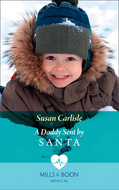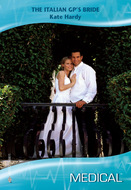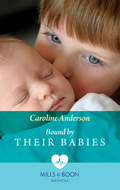Książki nie można pobrać jako pliku, ale można ją czytać w naszej aplikacji lub online na stronie.
Czytaj książkę: «From Christmas To Forever?»

Praise for Marion Lennox
‘Marion Lennox’s Rescue at Cradle Lake is simply magical, eliciting laughter and tears in equal measure. A keeper.’
—RT Book Reviews
‘Best of 2010: a very rewarding read. The characters are believable, the setting is real, and the writing is terrific.’
—Dear Author on Christmas with Her Boss
She really was fragile, Hugo thought, bending down to give his niece a hug. Last year had been a tragedy for Ruby, and it still showed. She expected calamity.
‘This isn’t ruin,’ he said gently. ‘It’s just flour.’
‘It’s snow. To make Polly feel better when we’re not here.’
‘And Polly loves it,’ Polly said, and then sneezed as if she needed to accentuate the point. ‘Ruby, it’s still great. Look what we’ve done, Dr Denver. All we need you to do is chop down a tree, so I suggest you stop dripping and start helping while I clean up your mess …’
‘My mess?’
‘Your mess,’ she said, and grinned. ‘Walking in on artists at work … you should know better.’
‘I’m glad I didn’t,’ he said faintly, and he looked around at the mess and thought for the first time in … how long? … that this place looked like home.
What was better than this? he thought. What was better than Polly?
Dear Reader,
I was raised in a farming community, where everyone knew everyone and where our doctor seemed the linchpin of our lives. Doc—he needed no other name—was known to walk fifteen miles between clinics during wartime petrol rationing. By the time he delivered me he was in his eighties, and he worked on until I was in my teens. We never called him unless we truly needed him, but when we did he gave his all. I remember his grandson telling me what it was like at Doc’s house at Christmas. You couldn’t move for whisky, he said, and grateful gifts of home-baked goodies and produce were almost an embarrassment. When he died, the entire district mourned.
In a way, this book is a testament to Doc and to the caring community I was raised in. My husband and I have recently—joyously—moved back to a small town. As I write this I’m looking forward to Christmas in our new/old home, in our new/old community, and I’m wishing you the magic of belonging. I’m also wishing you the love shown by Doc, and by so many medical staff who follow his tradition of care, and I’m wishing you a very happy Christmas.
Marion Lennox
MARION LENNOX is a country girl, born on an Australian dairy farm. She moved on, because the cows just weren’t interested in her stories! Married to a ‘very special doctor’, she has also written under the name Trisha David. She’s now stepped back from her ‘other’ career, teaching statistics. Finally she’s figured out what’s important, and has discovered the joys of baths, romance and chocolate. Preferably all at the same time! Marion is an international award-winning author.
From Christmas to Forever?
Marion Lennox

MILLS & BOON
Before you start reading, why not sign up?
Thank you for downloading this Mills & Boon book. If you want to hear about exclusive discounts, special offers and competitions, sign up to our email newsletter today!
Or simply visit
Mills & Boon emails are completely free to receive and you can unsubscribe at any time via the link in any email we send you.
To the many people who’ve already made us welcome in our new home. To Jacky, to Gail, to Colleen, to Alison, and to all on Fisherman’s Flat, to all who welcome us as we walk our dog, paddle our kayaks, or simply yak over the front fence. You’re stuck with us for life, and we love it.
Table of Contents
Cover
Praise for Marion Lennox
Excerpt
Dear Reader
About the Author
Title Page
Dedication
CHAPTER ONE
CHAPTER TWO
CHAPTER THREE
CHAPTER FOUR
CHAPTER FIVE
CHAPTER SIX
CHAPTER SEVEN
CHAPTER EIGHT
CHAPTER NINE
CHAPTER TEN
CHAPTER ELEVEN
CHAPTER TWELVE
CHAPTER THIRTEEN
CHAPTER FOURTEEN
EPILOGUE
Copyright
CHAPTER ONE
CHRISTMAS IN THE middle of nowhere. Wombat Valley. Hooray!
Dr Pollyanna Hargreaves—Polly to everyone but her mother—beefed up the radio as she turned off the main road. Bing Crosby’s ‘White Christmas’ wasn’t exactly appropriate for Christmas deep in the Australian bush, but it didn’t stop her singing along. She might be a long way from snow, but she was happy.
The country around her was wild and mountainous. The twisting road meant this last section of the journey could take a while, but the further she went, the further she got from the whole over-the-top celebration that was her parents’ idea of Christmas.
‘You can’t be serious!’ She could still hear her mother’s appalled words when she’d broken the news that she wouldn’t be spending Christmas with them. ‘We’ve planned one of the most wonderful Christmases ever. We’ve hired the most prestigious restaurant on Sydney Harbour. All our closest friends are coming, and the head chef himself has promised to oversee a diabetic menu. Pollyanna, everyone expects you.’
Expectation was the whole problem, Polly thought, as she turned through the next curve with care. This road was little more than a logging route, and recent rain had gouged gutters along the unsealed verge. The whole of New South Wales had been inundated with weeks of subtropical downpours, and it looked as if Wombat Valley had borne the brunt of them. She was down to a snail’s pace.
But she wasn’t worried. She wasn’t in Sydney. Or in Monaco, where she’d been last Christmas. Or in Aspen, where she’d been the Christmas before that.
Cute little Pollyanna had finally cut and run.
‘And I’m not going back,’ she told the road ahead. Enough. She felt as if she’d been her parents’ plaything since birth, saddled with a preposterous name, with nannies to take care of every whim and loaded with the expectation that she be the perfect daughter.
For Polly was the only child of Olivia and Charles Hargreaves. Heiress to the Hargreaves millions. She was courted and fussed over, wrapped in cotton wool and expected to be …
‘Perfect.’ She abandoned Bing and said the word aloud, thinking of the tears, the recriminations, the gentle but incessant blackmail.
‘Polly, you’ll break your mother’s heart.’ That was what her father had said when Polly had decided, aged seven, that she liked chocolate ice cream, eating a family tub behind her nanny’s back and putting her blood sugars through the roof. And ever since … ‘You know we worry. Don’t you care?’
And then, when she’d decided she wanted to be a doctor …
‘Pollyanna, how can you stress your body with a demanding career like medicine? Plus you have your inheritance to consider. If you need to work—which you don’t—then at least take a position in the family company. You could be our PR assistant; that’s safe. Medicine! Polly, you’ll break our hearts.’
And now this. Breaking up with the boy they wanted her to marry, followed by Not Coming Home For Christmas. Not being there to be fussed over, prettied, shown off to their friends. This was heartbreak upon heartbreak upon heartbreak.
‘But I’m over it,’ she said out loud. ‘I’m over families—over, over, over. I’m an independent career woman so it’s time I started acting like one. This is a good start. I’m five hours’ drive from Sydney, in the middle of nowhere. I’m contracted to act as locum for two weeks. I can’t get further away than this.’
And it was exciting. She’d trained and worked in city hospitals. She didn’t have a clue about bush medicine, but the doctor she was relieving—Dr Hugo Denver—had told her things would be straightforward.
‘We’re usually busy,’ he’d said in their phone interview. ‘The valley could use two doctors or more, but over Christmas half the population seems to depart for Sydney or the coast. We run a ten-bed hospital but anything major gets helicoptered out. Mostly we deal with minor stuff where it’s not worth the expense of sending for the Air Ambulance, or long-termers, or locals who choose to die in the Valley rather than in acute city hospitals.’
‘You provide palliative care?’ she’d asked, astonished.
‘Via home visits, mostly,’ he’d told her. ‘Most of our oldies only go to the city under duress, and it’s an honour to look after them at home. I also deal with trauma, but the logging industry closes down for three weeks over Christmas and the place is quiet. I doubt if you’ll have much excitement.’
‘But I wouldn’t mind a bit of excitement,’ she said aloud as she manoeuvred her little sports car around the next bend. ‘Just enough to keep me occupied.’
And then, as if in answer to her prayers, she rounded the next bend—and got more excitement than she’d bargained for.
Dr Hugo Denver was well over excitement. Hugo was cramped inside a truck balanced almost vertically over the side of a cliff. He was trying to stop Horace Fry from bleeding out. He was also trying not to think that Ruby was totally dependent on him, and his life seemed to be balanced on one very unstable, very young tree.
The call had come in twenty minutes ago. Margaret Fry, wife of the said Horace, had managed to crawl out of the crashed truck and ring him.
‘Doc, you gotta come fast.’ She’d sobbed into the phone. ‘Horace’s bleeding like a stuck pig and there’s no one here but me.’
‘He’s still in the truck?’
‘Steering wheel jabbed him. Blood’s making him feel faint.’
‘Bleeding from where?’
‘Shoulder, I think.’
‘Can you put pressure on it?’
‘Doc, I can’t.’ It was a wail. ‘You know blood makes me throw up and I’m not getting back in that truck. Doc, come, fast!’
What choice did he have? What choice did he ever have? If there was trauma in Wombat Valley, Hugo was it.
‘Ring the police,’ he snapped. ‘I’m on my way.’
Lois, his housekeeper, had been preparing lunch. She’d been humming Christmas carols, almost vibrating with excitement. As was Ruby. As soon as the locum arrived they were off, Lois to her son’s place in Melbourne, Hugo and Ruby to their long-awaited two-week holiday.
Christmas at the beach … This was what his sister had promised Ruby last year, but last year’s Christmas had become a blur of shock and sorrow. A car crash the week before. A single car accident. Suicide?
Hugo’s life had changed immeasurably in that moment, as had Ruby’s.
Twelve months on, they were doing their best. He was doing his best. He’d moved back to Wombat Valley so Ruby could stay in her home, and he fully intended to give her the longed-for beach Christmas.
But commitment meant committing not only to Ruby but to the community he lived in. The locals cared for Ruby. He cared for the locals. That was the deal.
Lois had been putting cold meat and salad on the table. She’d looked at him as he disconnected, and sighed and put his lunch in the fridge.
‘Ring Donald,’ he’d told her. Donald was a retired farmer who also owned a tow truck. It was a very small tow truck but the logging company with all its equipment was officially on holidays since yesterday. Donald’s truck would be all the valley had. ‘Tell him Horace Fry’s truck’s crashed at Blinder’s Bend. Ring Joe at the hospital and tell him to expect casualties. Tell him I’ll ring him as soon as I know details, and ask him to check that the police know. I need to go.’
‘Aren’t you expecting the new doctor?’ Lois had practically glowered. She wanted to get away, too.
‘If she arrives before I get back, you can give her my lunch,’ he’d said dryly. ‘I’ll eat at the hospital.’
‘Should I send her out to Blinder’s? She could start straight away.’
‘I can hardly throw her in at the deep end,’ he’d told her. ‘Hopefully, this will be the last casualty, though, and she’ll have a nice quiet Christmas.’ He’d dropped a kiss on his small niece’s head. ‘See you later, Ruby. Back soon.’
But now …
A quiet Christmas was just what he wanted, he thought grimly as he pushed hard on the gaping wound on Horace’s shoulder. The steering wheel seemed to have snapped right off, and the steering column had jabbed into Horace’s chest.
And he’d bled. Hugo had stared in dismay into the truck’s cab, he’d looked at the angle the truck was leaning over the cliff, he’d looked at the amount of blood in the cabin and he’d made a call.
The truck was balanced on the edge of the cliff. The ground was sodden from recent rain but it had still looked stable enough to hold. He’d hoped …
He shouldn’t have hoped. He should have waited for Donald with his tow truck, and for the police.
It didn’t matter what he should have done. Margaret had been having hysterics, useless for help. Hopefully, Donald and his tow truck were on their way but he’d take a while. The police had to come from Willaura on the coast, and he hadn’t been able to wait.
And then, as he’d bent into the cab, Horace had grasped his wrist with his good arm and tried to heave himself over to the passenger seat. He was a big man and he’d jerked with fear, shifting his weight to the middle of the cabin …
Hugo had felt the truck lurch and lurch again. He’d heard Margaret scream as the whole verge gave way and they were falling …
And then, blessedly, the truck seemed to catch on something. From this angle, all he could see holding them up was one twiggy sapling. His life depended on that sapling. There was still a drop under them that was long enough to give him nightmares.
But he didn’t have time for nightmares. He’d been thrown around but somehow he was still applying pressure to Horace’s arm. Somehow he’d pushed Horace back into the driver’s seat, even if it was at a crazy angle.
‘You move again and we’ll both fall to the bottom of the cliff,’ he told Horace and Horace subsided.
To say his life was flashing before his eyes would be an understatement.
Ruby. Seven years old.
He was all she had.
But he couldn’t think of Ruby now. He needed to get back up to the road. Horace had lost too much blood. He needed fluids. He needed electrolytes. He needed the equipment to set up a drip …
Hugo moved a smidgen and the truck swayed again. He glanced out of the back window and saw they were ten feet down the cliff.
Trapped.
‘Margaret?’ he yelled. ‘Margaret!’
There was no reply except sobbing.
His phone … Where the hell was his phone?
And then he remembered. He’d done a cursory check on Margaret. She’d been sobbing and shaking when he’d arrived. She was suffering from shock, he’d decided. It had been an instant diagnosis but it was all he’d had time for, so he’d put his jacket across her shoulders and run to the truck.
His phone was still in his jacket pocket.
‘Margaret!’ he yelled again, and the truck rocked again, and from up on the cliff Margaret’s sobs grew louder.
Was she blocking her husband’s need with her cries? Maybe she was. People had different ways of protecting themselves, and coming near a truck ten feet down a cliff, when the truck was threatening to fall another thirty, was possibly a bad idea.
Probably.
Definitely?
‘That hurt!’ Horace was groaning in pain.
‘Sorry, mate, I need to push hard.’
‘Not my shoulder, Doc—my eardrum.’
Great. All this and he’d be sued for perforating Horace’s eardrum?
‘Can you yell for Margaret? We need her help.’
‘She won’t answer,’ Horace muttered. ‘If she’s having hysterics the only thing that’ll stop her is ice water.’
Right.
‘Then we need to sit really still until help arrives,’ he told him, trying not to notice Horace’s pallor, deciding not to check his blood pressure because there wasn’t a thing he could do about it. ‘The truck’s unstable. We need to sit still until Donald arrives with his tow truck.’
‘Then we’ll be waiting a while,’ Horace said without humour. ‘Donald and his missus have gone to their daughter’s for Christmas. Dunno who’s got a tow truck round here. It’ll have to be a tractor.’
‘Can you get Margaret to ring someone?’
‘Like I said, Doc, she’s useless.’
There was an SUV parked right where she wanted to drive.
It was serviceable, dirty white, a four-wheel drive wagon with a neat red sign across the side. The sign said: ‘Wombat Valley Medical Service’.
It blocked the road completely.
She put her foot on the brake and her car came to a well-behaved standstill.
The road curved behind the SUV, and as her car stopped she saw the collapse of the verge. And as she saw more, she gasped in horror.
There was a truck below the collapse. Over the cliff!
A few hundred yards back she’d passed a sign declaring this area to be Wombat Valley Gap. The Gap looked to be a magnificent wilderness area, stretching beneath the road as far as the eye could see.
The road was hewn into the side of the mountain. The edge was a steep drop. Very steep. Straight down.
The truck looked as if it had rounded the curve too fast. The skid marks suggested it had hit the cliff and spun across to the edge. The roadside looked as if it had given way.
The truck had slipped right over and was now balanced precariously about ten feet down the cliff, pointing downward. There were a couple of saplings holding it. Just.
A woman was crouched on the verge, weeping, and Polly herself almost wept in relief at the sight of her. She’d escaped from the truck then?
But then she thought … SUV blocking the road. Wombat Valley Medical Service … Two vehicles.
Where was the paramedic?
Was someone else in the truck? Was this dramas, plural?
Help!
She was a city doctor, she thought frantically. She’d never been near the bush in her life. She’d never had to cope with a road accident. Yes, she’d cared for accident victims, but that had been in the organised efficiency of a city hospital Emergency Room.
All of a sudden she wanted to be back in Sydney. Preferably off-duty.
‘You wanted to be a doctor,’ she told herself, still taking time to assess the whole scene. Her lecturers in Emergency Medicine had drilled that into her, and somehow her training was coming back now. ‘Don’t jump in before you’ve checked the whole situation. Check fast but always check. You don’t want to become work for another doctor. Work out priorities and keep yourself safe.’
Keeping herself safe had never been a problem in the ER.
‘You wanted to see medicine at its most basic,’ she reminded herself as she figured out what must have happened. ‘Here’s your chance. Get out of the car and help.’
My, that truck looked unstable.
Keep yourself safe.
The woman was wailing.
Who was in the truck?
Deep breath.
She climbed out of her car, thinking a flouncy dress covered in red and white polka dots wasn’t what she should be wearing right now. She was also wearing crimson sandals with kitten heels.
She hardly had time to change. She was a doctor and she was needed. Disregarding her entirely inappropriate wardrobe, she headed across to the crying woman. She was big-boned, buxom, wearing a crinoline frock and an electric-blue perm. She had a man’s jacket over her shoulders. Her face was swollen from weeping and she had a scratch above one eye.
‘Can you tell me what’s happened?’ Polly knelt beside her, and the woman stared at her and wailed louder. A lot louder.
But hysterics was something Pollyanna Hargreaves could deal with. Hysterics was Polly’s mother’s weapon of last resort and Polly had stopped responding to it from the age of six.
She knelt so her face was six inches from the woman’s. She was forcing her to look at her and, as soon as she did, she got serious.
‘Stop the noise or I’ll slap you,’ she said, loud and firm and cold as ice. Doctor threatening patient with physical violence … Good one, Polly thought. That’s the way to endear you to the locals. But it couldn’t matter. Were there people in that upside down truck?
‘Who’s in the truck?’ she demanded. ‘Take two deep breaths and talk.’
‘I … my husband. And Doc …’
‘Doc?’
‘Doc Denver.’
‘The doctor’s in the truck?’
‘He was trying to help Horace.’ Somehow she was managing to speak. ‘Horace was bleeding. But then the ground gave way and the truck slid and it’s still wobbling and it’s going to fall all the way down.’
The woman subsided as Polly once again took a moment to assess. The truck was definitely … wobbling. The saplings seemed to be the only thing holding it up. If even one of them gave way …
‘Have you called for help?’ she asked. The woman was clutching her phone.
‘I called Doc …’
‘The doctor who’s here now?’
‘Doc Denver, yes.’
‘Good for you. How about the police? A tow truck?’
The woman shook her head, put her hands to her face and started loud, rapid breathing. Holly took a fast pulse check and diagnosed panic. There were other things she should exclude before a definitive diagnosis but, for now, triage said she needed to focus on the truck.
‘I need you to concentrate on breathing,’ she told the woman. ‘Count. One, two, three, four—in. One, two, three, four—out. Slow your breathing down. Will you do that?’
‘I … yes …’
‘Good woman.’ But Polly had moved on. Truck. Cliff. Fall.
She edged forward, trying to see down the cliff, wary of the crumbling edge.
What was wrong with Christmas in Sydney? All at once she would have given her very best shoes to be there.








